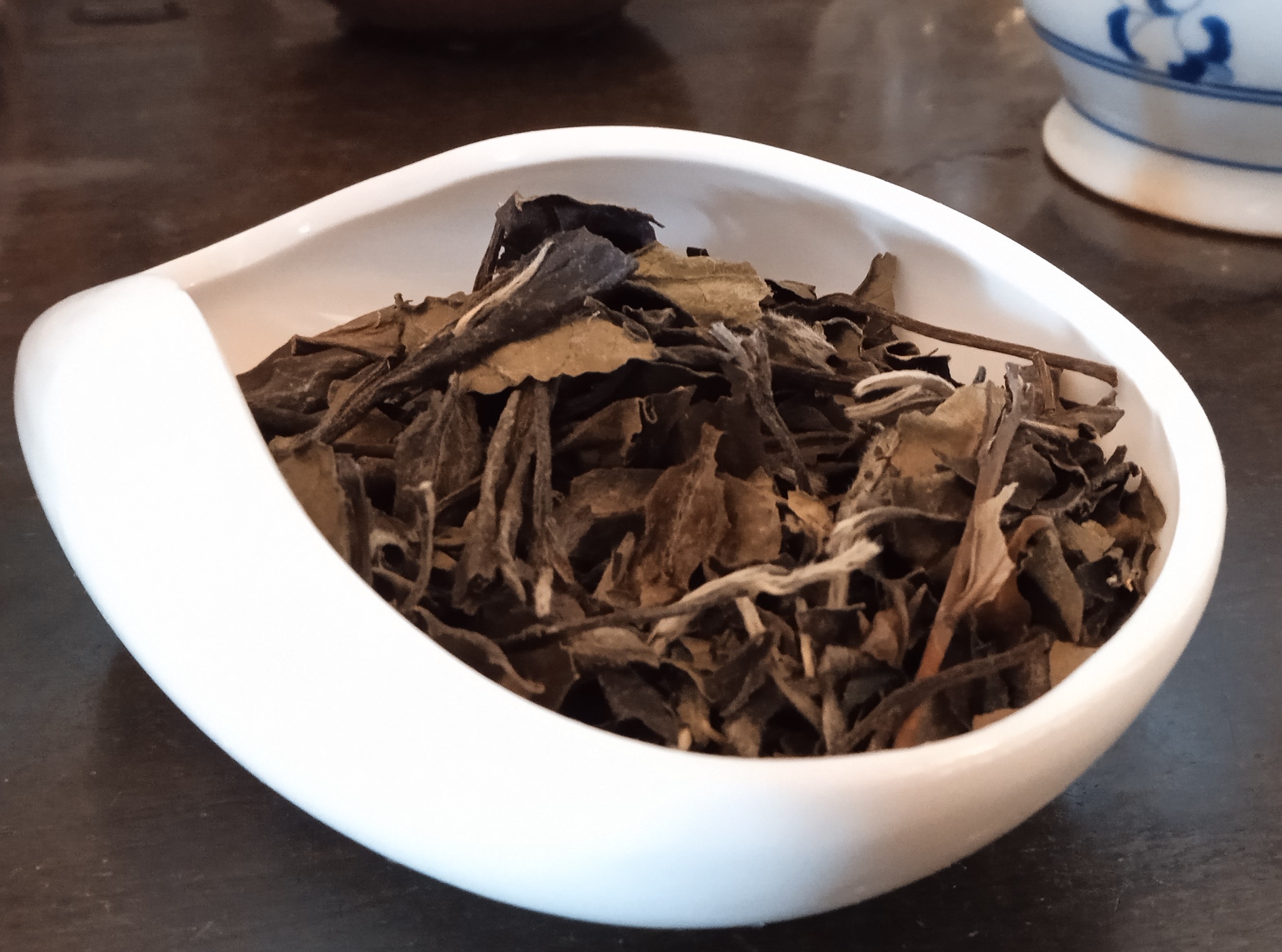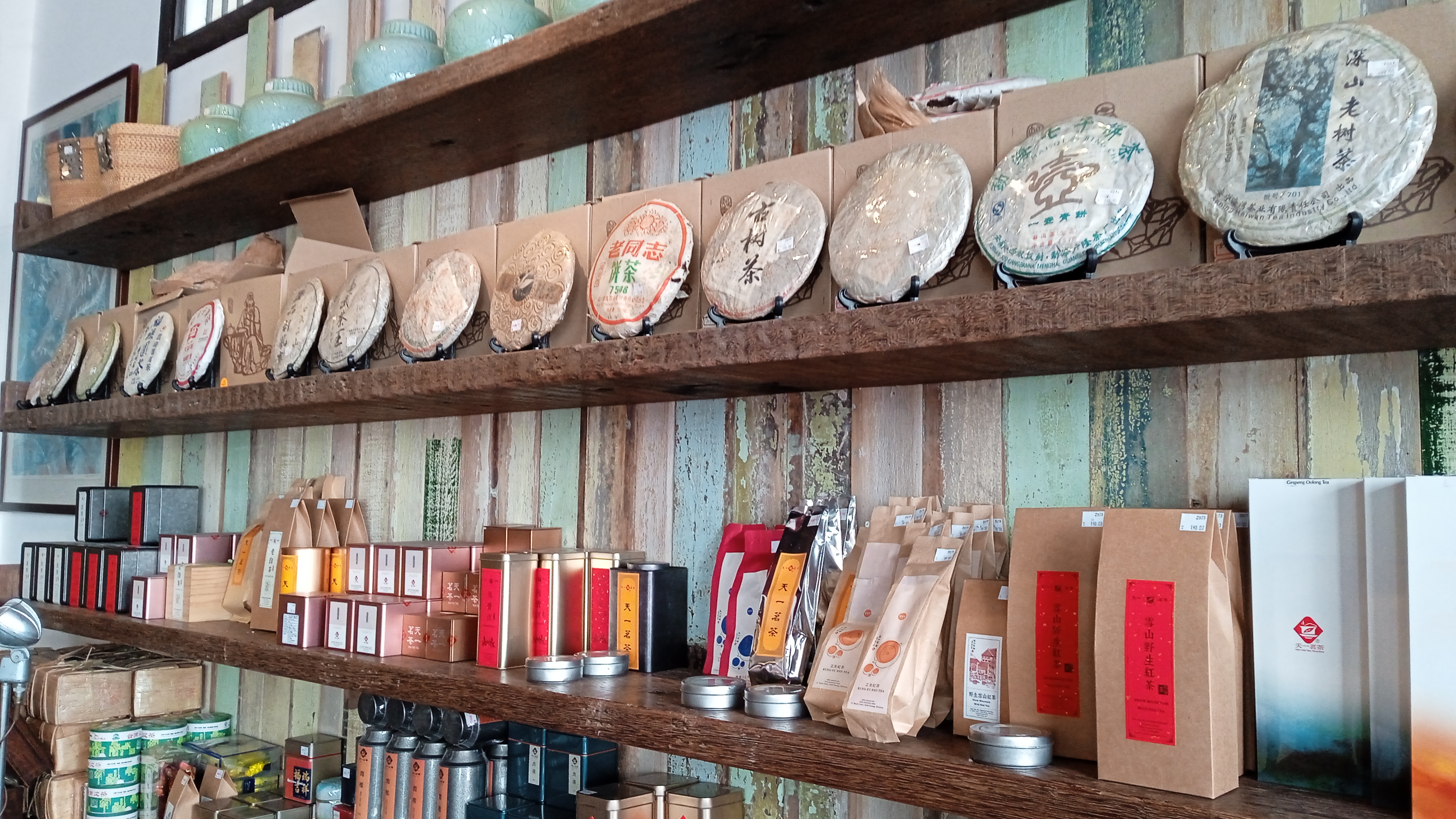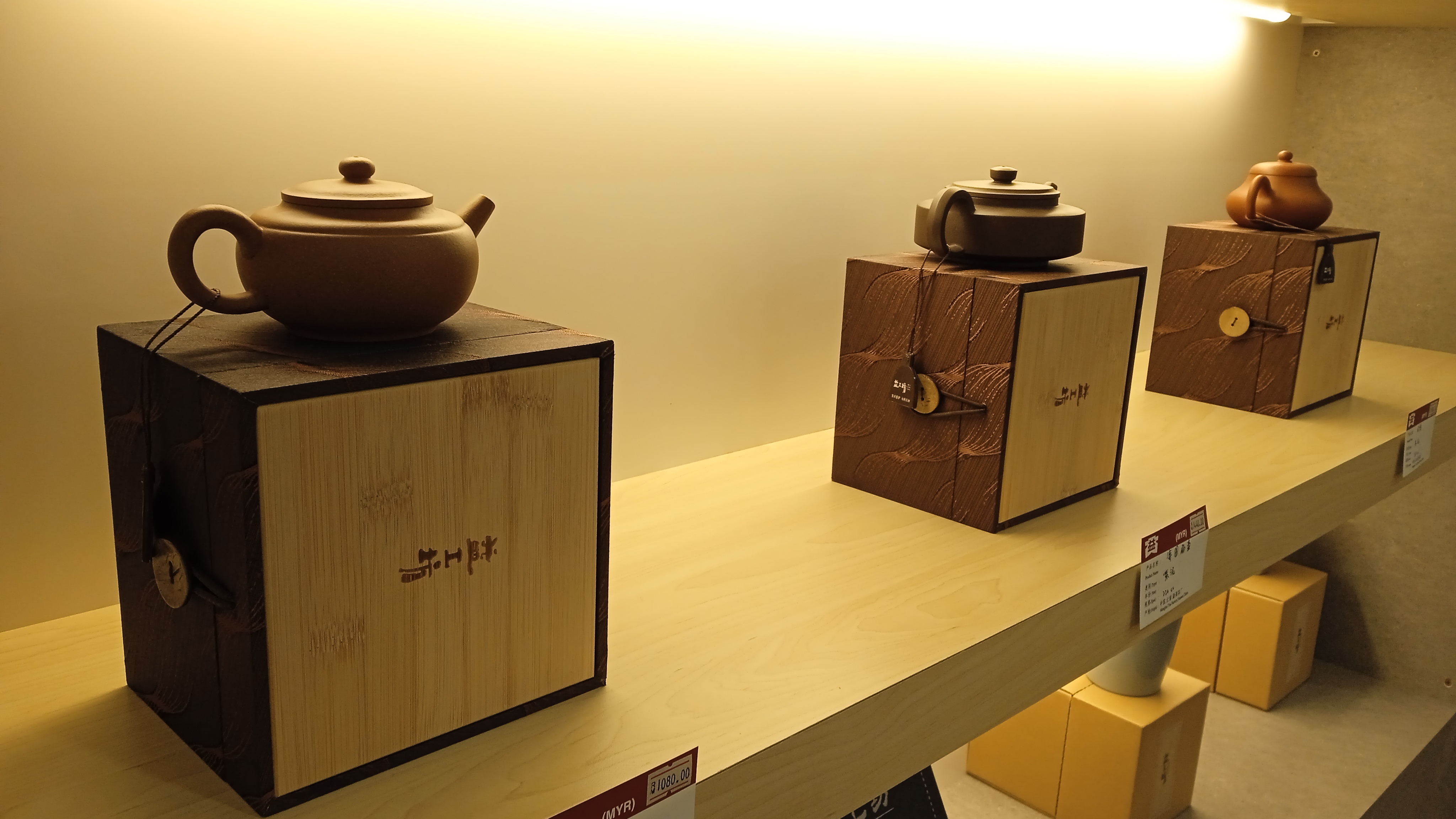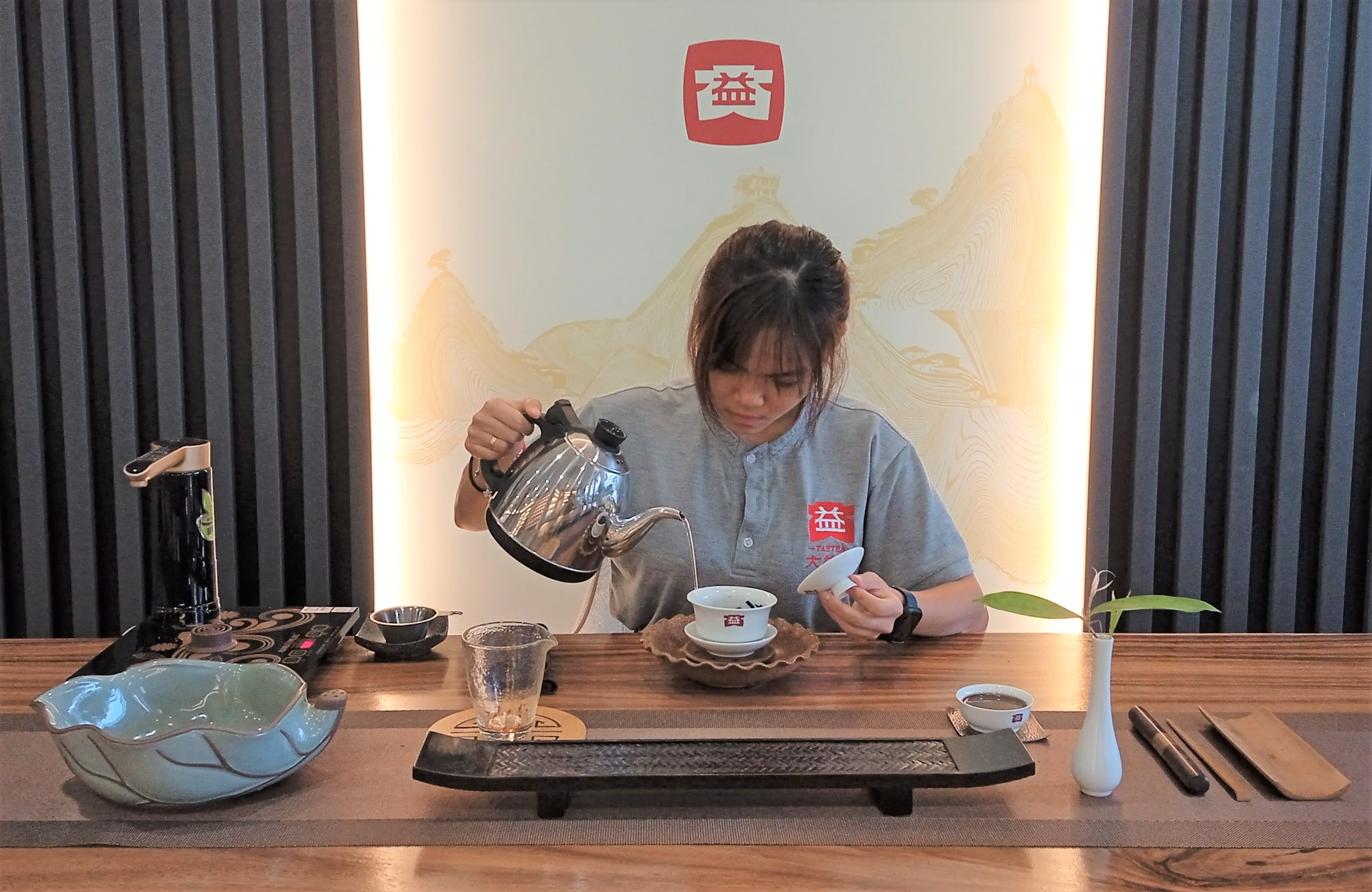Chinese Tea Becoming Popular in Penang Again
By Sherra Yeong

TO ENJOY A good cup of Chinese tea, much depends on how the leaves of the camellia sinensis plant is processed; through withering, oxidation, fixing or “kill green”, rolling, drying or steaming.
Different tea types are produced from these processes, such as black tea or “red tea” as it is known in China (pu-erh and Keemun), oolong (Da Hong Pao and Tie Guan Yin), green tea (Long Jing and Bi Luo Chun), white tea (Baihao Yinzhen) and yellow tea (Junshan Yinzhen).
Some teas, when aged, develop a richer, more intense flavour profile like the pu-erh, while green tea, white tea and oolong are for immediate consumption, usually within the first two years of production.
There are also popular tea blends with interesting flavour profiles. Kuk pou blends the ripe earthiness of pu-erh with floral notes of the chrysanthemum. Oolong with its distinctive sharpness is mildly punctuated by the buttery floral aroma of the osmanthus, and the more popular blend of jasmine and green tea marries the fragrance of jasmine with the herbaceous quality of green tea.
“The penetration of premium Chinese tea in the Malaysian market has a long way to go, but there is definitely potential,” says Ashley Lim, a second-generation tea merchant of the family business, Ten Yee Tea Trading.

Lim’s observation is seconded by the co-owners of Taetea, Lee Yaw Chong, Tan Chee Leong and Ong Jia Jet. Ong, whose father was also a tea merchant, notes that while their customers are mainly Chinese, he sees interest brewing among Malaysians across the demographic board. “I notice this especially in people who are in their twenties and thirties.”
This increase in interest boils down to people becoming more health-conscious. Chinese tea is touted for its many health benefits; for good heart health, it aids in lowering blood pressure and cholesterol levels; stimulates energy and improves memory; and has high polyphenol content, known for its anti-inflammatory and antioxidant properties.
However, not all Chinese tea types are recommended for daily consumption. Green or raw tea, including raw pu-erh, should be drunk in moderation for those with a sensitive stomach. It is also important to stress that tea-drinking is not a quick cure for serious illnesses, rather it is meant as a supplement for a robust immune system.
A Cup of Tea for Inner Peace
Chinese tea, like coffee, is a bonding tool, albeit with a lower caffeine content. To illustrate this point, a Chinese tea ceremony is held to commemorate the union of two families upon marriage. It is also a form of centuries-old meditation.
“The tea ceremony requires calm concentration of the mind and body,” says Wilson Teh Wei Lin. He runs experiential classes on Chinese tea ceremony in Tanjung Tokong. “Follow the flow of water between the pot and teacup to achieve internal focus and to find one’s inner zen.” Wilson started the class three years ago to encourage tea appreciation among young people.

Brewing 101
One does not have to visit a tea house to enjoy Chinese tea. With some basic teaware, e.g. clay teapot, a tea scoop for measuring out the leaves and of course, the preferred tea type, you can make yourself a good cup of tea at home. A lighter tea (white tea) is typically enjoyed in the morning; its milder taste wakes up the taste buds for more stronger brews later in the day.
But a word of caution though, those who are susceptible to the effects of caffeine should avoid drinking tea after 4pm if they wish to have a restful sleep; and while tea detoxifies the body, it is also a diuretic.
There is no need to splurge on expensive Chinese teas, says Ashley. “But a good quality tea will definitely evoke enticing aromas and flavours.” For storage, it is recommended that the tea leaves be stored in a moderately dry and cool area.
Tea-drinking Faux Pas

“By far the most common mistake in drinking Chinese tea is the addition of sugar and milk,” says Wilson. “Adding them to regular black tea is fine, but the delicate flavours of pu-erh and green tea will be lost if our palates are saturated.”
Re-using tea leaves that have been steeped overnight is also a big no-no. “While it is not unsafe for consumption, it is also not recommended because of the high acidity content,” says Lee.
The writer’s debut book Local Outsider: A Sabahan’s View of West Malaysia is out now. E-book purchase can be made on the Amazon Kindle, Kobo, Apple Books, Barnes & Noble, Vivlio and Tolino websites. For purchase of physical copies, visit sherrayeong.com/product/buy-local-outsider.
***
Chinese Tea House in Penang
Taetea (https://www.taetea.com.my)
Taetea Garden Tea Home Trading
No. 6, Cintra Street, 10100 George Town, Penang.
+604-2612496
Taetea Tea Home Trading
No. 164, Jalan Kelawei, 10250 George Town, Penang.
+016-4986940
Taetea Tea Home Trading
72-1-25, Jalan Mahsuri, Arena Curve, 11950 Bayan Lepas, Penang.
+604-6117542
Taetea Garden Tea Home Bukit Mertajam
9, Persiaran Seri Impian, Pusat Perniagaan Mahkota Impian, 14000 Bukit Mertajam, Penang.
+6019-660 6196
Purple Cane Tea Art Centre (https://www.purplecane.my)
Lot 22 & 23, Lower Ground Floor, Gurney Paragon Mall, 163 D, Persiaran Gurney, 10250 George Town, Penang.
+604-2189 098
Legend of Tea (https://legend-of-tea.com.my)
170-B1-29, Gurney Plaza, 10250 George Town, Penang.
+604-228 2237
Qing Huan Chinese Tea House
7, Lorong Kuching, Pulau Tikus, 10350 George Town, Penang.
+6012-5613705
Lao Ba Cha Tea House
488B-G-04, Midlands Park, 10350 George Town, Penang.
+604-2264877
Chin Bee Tea Restaurant
124, Lebuh Noordin, 10300 George Town, Penang.
+604-2611761
Ten Yee Tea Trading Sdn. Bhd. (www.tenyeetea.com)
33, Ground Floor, Beach Street, 10300 George Town, Penang.
+604-2625693
Faongg Ancient Tea Enterprise
No. 8, Jalan Betik Manis, Taman Betik Manis, 14000 Bukit Mertajam, Seberang Perai, Penang.
+6014-6011866
Sherra Yeong

is an aspiring author with a Bachelor’s degree in Food Science and a passion for good food and wine. She writes at sherrayeong.com.



